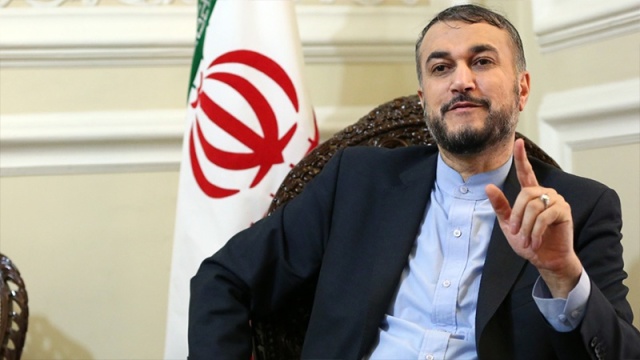Dubai. April 15th. INTERFAX - Iran does not want an increase in tension in the Middle East region, but is ready for an immediate and more powerful strike than the one carried out on the night of April 14 in the event of an Israeli attack, Iranian Foreign Minister Hossein Amir Abdollahian said.
"Iran will respond with more powerful actions than before if Israel responds (to the strikes)," Western media quoted the minister as saying during his conversation with his British counterpart.
In addition, Iranian Foreign Ministry spokesman Nasser Kanani also stressed that Tehran does not seek to escalate tensions in the region.
"Iran acted based on the protection of national security and interests, as well as taking into account the inaction of the UN Security Council regarding the use of force by Israel against the Iranian embassy in Damascus, as well as after the irresponsible behavior of the United States, Great Britain and France," he said, as quoted by the Tasnim news agency.
According to him, Tehran considers the attack against Israel to be absolutely legitimate and in accordance with the UN Charter.
Meanwhile, on Monday, the Israeli military cabinet held a meeting during which they discussed possible options for responding to the Iranian attack. Israeli TV channel 12 reports that the ministers discussed a response to Iran with the "intention to inflict damage on it for drone and missile strikes on Israel, but not to cause an all-out war."
The channel reports, citing sources, that the Israeli leadership has come to the conclusion that it is necessary to strike a "clear and decisive" retaliatory strike against Iran. At the same time, Israel does not want the response to provoke a war in the region, and it also does not want to lose the support of the coalition that helped it repel the Iranian attack.
The American portal Axios also reported on Monday that Israeli Defense Minister Yoav Gallant told Pentagon Chief Lloyd Austin that "Israel has no choice but to respond to Iran's attack." Galant also noted that Israel does not accept a situation in which Iran responds with a direct attack every time Jerusalem hits targets in Syria.
In turn, opposition politician Avigdor Lieberman, former defense minister and Foreign Minister of Israel, said that Israel managed to repel the Iranian attack only thanks to the help of the United States: the capabilities of American intelligence and early interception. And therefore, he believes, Israel should seek maximum coordination with the United States on the issue of a retaliatory attack against Iran. According to him, the United States "recognizes that Israel has no alternative but to retaliate against Iran for its attack."
The American CNN channel, citing sources, reported that Israel has reportedly decided to postpone the operation in Rafah in the Gaza Strip, which it has been planning for several months, due to the situation with Iran. The Israeli authorities are considering a response to the attack, and because of this, the active phase of the operation is postponed for at least several days.
Meanwhile, on Monday evening, the Israeli Air Force struck targets in southern Lebanon, in particular, the infrastructure that the Hezbollah group uses to shell northern Israel. Shortly before this strike, Israel was subjected to rocket fire from Lebanon. The Israel Defense Forces said that these missiles hit an open area.
In addition, Israeli fighter jets struck Khan Yunis in the Gaza Strip on Monday, and Israeli forces also conducted raids in settlements north of Jerusalem.

